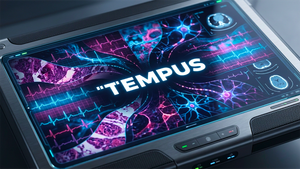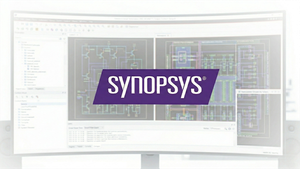- RAINBOWFISH study met its primary endpoint with 80% of babies sitting without support for at least 5 seconds after 1 year of Evrysdi treatment — without treatment these babies would never be able to sit -
- All babies were able to swallow and feed orally and none required permanent ventilation -
- Evrysdi is the only non-invasive SMA therapy and is approved in over 100 countries with more than 11,000 patients treated globally -
Genentech, a member of the Roche Group (SIX: RO, ROG; OTCQX: RHHBY), today presented positive results from the primary analysis of the ongoing RAINBOWFISH study assessing the efficacy and safety of Evrysdi® (risdiplam) in babies with pre-symptomatic SMA (n=26), aged from birth to 6 weeks. These data were presented at the 28th World Muscle Society (WMS) Congress, October 3-7, 2023.
“Evrysdi is the only non-invasive SMA treatment and can be used within hours of birth, potentially allowing these babies to sit, stand and walk, similar to healthy individuals,” said Levi Garraway, M.D., Ph. D., Genentech’s chief medical officer and head of Global Product Development. “Evrysdi has now demonstrated its safety and efficacy in babies, children and adults, and these compelling data continue to reinforce our confidence in this treatment.’’
Clinical studies show that the loss of motor neurons may begin before symptoms start, so initiating treatment early is critical for better outcomes. The RAINBOWFISH study included babies with 2 or more copies of the SMN2 gene. Generally, the lower the number, the more severe the disease.
The study met its primary endpoint with 80% of the primary efficacy population (n=5) sitting without support for at least 5 seconds after 1 year of Evrysdi treatment, assessed by Bayley Scales of Infant and Toddler Development, Third Edition (BSID-III). The primary efficacy population included babies with 2 SMN2 copies and a CMAP amplitude of ≥1.5 mV at baseline. CMAP amplitude measures the muscle response to a stimulus, and a low score correlates with symptom onset in SMA patients and worse functional outcomes. Of the 26 babies in the study, 81% could sit independently for 30 seconds, including all patients with low CMAP amplitude at baseline (<1.5 mV), and the majority were standing and walking. Without treatment, children with Type 1 SMA would never be expected to sit.
RAINBOWFISH was the first trial to assess cognition with a standardized scale (BSID) as an exploratory endpoint, and results showed cognitive skills typical of normal child development after 1 year of Evrysdi treatment, assessed by BSID-III.
Adverse events (AEs) were more reflective of the age of the babies than underlying SMA. The majority of AEs were not considered treatment-related, and there were no deaths or AEs leading to withdrawal or treatment discontinuation. The most common AEs were teething, COVID-19, pyrexia, gastroenteritis, eczema and constipation. The AEs observed in the RAINBOWFISH primary analysis are generally consistent with those AEs seen in other Evrysdi trials in SMA.
“These data reinforce the value of beginning treatment for SMA before symptoms appear, with the goal of preserving motor neurons while they are still abundant,” said Richard Finkel, M.D., RAINBOWFISH Principal Investigator and Director of the Experimental Neuroscience Program at St. Jude Children’s Research Hospital. “Coupled with widespread newborn screening programs, early treatment could counteract the effects of the disease to give babies with pre-symptomatic SMA the best possible start in life.”
Genentech is also investigating Evrysdi in combination with an anti-myostatin molecule, which is designed to promote muscle growth, among SMA patients 2-10 years of age in the Phase II/III MANATEE trial.
About Evrysdi® (risdiplam)
Evrysdi is a survival motor neuron 2 (SMN2) splicing modifier designed to treat SMA caused by mutations in chromosome 5q that lead to survival motor neuron (SMN) protein deficiency. Evrysdi is administered daily at home in liquid form and non-invasively by mouth or by feeding tube.
Evrysdi is designed to treat SMA by increasing and sustaining the production of SMN protein in the central nervous system (CNS) and peripheral tissues, as demonstrated in animal models. SMN protein is found throughout the body and is critical for maintaining healthy motor neurons and core motor functions such as swallowing, speaking, and breathing.
Evrysdi was granted PRIME designation by the European Medicines Agency (EMA) in 2018 and Orphan Drug Designation by the U.S. Food and Drug Administration in 2017. In 2021, Evrysdi was awarded Drug Discovery of the Year by the British Pharmacological Society as well as the Society for Medicines Research Award for Drug Discovery. Evrysdi is currently approved in over 100 countries, and the dossier is under review in a further 15 countries.
Evrysdi is currently being evaluated in five multicenter trials in people with SMA:
- FIREFISH (NCT02913482) – an open-label, two-part pivotal clinical trial in infants with Type 1 SMA. The study met its primary endpoint.
- SUNFISH (NCT02908685) – a two-part, double-blind, placebo-controlled pivotal study in people aged 2-25 years with Types 2 or 3 SMA. The study met its primary endpoint.
- JEWELFISH (NCT03032172) – an open-label exploratory trial designed to assess the safety, tolerability, pharmacokinetics and pharmacodynamics in people with SMA aged 6 months to 60 years who received other investigational or approved SMA therapies for at least 90 days prior to receiving Evrysdi. The study has completed recruitment (n=174).
- RAINBOWFISH (NCT03779334) – an open-label, single-arm, multicenter study, investigating the efficacy, safety, pharmacokinetics and pharmacodynamics of Evrysdi in babies (n=26), from birth to 6 weeks of age (at first dose) with genetically diagnosed SMA who are not yet presenting with symptoms. The study is fully enrolled.
- MANATEE (NCT05115110) – a global Phase II/III clinical study to evaluate the safety and efficacy of GYM329 (RG6237), an anti-myostatin molecule targeting muscle growth, in combination with Evrysdi for the treatment of SMA in patients 2-10 years of age. The FDA Office of Orphan Products Development granted GYM329 Orphan Drug Designation for the treatment of patients with SMA in December 2021. The study is currently recruiting.
Genentech leads the clinical development of Evrysdi as part of a collaboration with the SMA Foundation and PTC Therapeutics.
About SMA
SMA is a severe, progressive neuromuscular disease that can be fatal. It affects approximately 1 in 10,000 babies and is among the leading genetic causes of infant mortality. SMA is caused by a mutation of the survival motor neuron 1 (SMN1) gene, which leads to a deficiency of SMN protein. This protein is found throughout the body and is essential to the function of nerves that control muscles and movement. Without it, nerve cells cannot function correctly, leading to muscle weakness over time. Depending on the type of SMA, an individual’s physical strength and their ability to walk, eat or breathe can be significantly diminished or lost.
What is Evrysdi?
Evrysdi is a prescription medicine used to treat spinal muscular atrophy (SMA) in children and adults.
Important Safety Information
-
Before taking Evrysdi, tell your healthcare provider about all of your medical conditions, including if you:
- are pregnant or plan to become pregnant, as Evrysdi may harm your unborn baby. Ask your healthcare provider for advice before taking this medicine
-
are a woman who can become pregnant:
- Before you start your treatment with Evrysdi, your healthcare provider may test you for pregnancy
- Talk to your healthcare provider about birth control methods that may be right for you. Use birth control while on treatment and for at least 1 month after stopping Evrysdi
- Pregnancy Registry. There is a pregnancy registry for women who take Evrysdi during pregnancy. The purpose of this registry is to collect information about the health of the pregnant woman and her baby. If you are pregnant or become pregnant while receiving Evrysdi, tell your healthcare provider right away. Talk to your healthcare provider about registering with the Evrysdi Pregnancy Registry. Your healthcare provider can enroll you in this registry or you can enroll by calling 1-833-760-1098 or visiting http://www.evrysdipregnancyregistry.com
- are an adult male. Evrysdi may affect a man’s ability to have children (fertility). Ask a healthcare provider for advice before taking this medicine
- are breastfeeding or plan to breastfeed. It is not known if Evrysdi passes into breast milk and may harm your baby
- Tell your healthcare provider about all the medicines you take
- You should receive Evrysdi from the pharmacy as a liquid. If the medicine in the bottle is a powder, do not use it. Contact your pharmacist for a replacement
- Avoid getting Evrysdi on your skin or in your eyes. If Evrysdi gets on your skin, wash the area with soap and water. If Evrysdi gets in your eyes, rinse your eyes with water
-
The most common side effects of Evrysdi include:
-
For later-onset SMA:
- fever
- diarrhea
- rash
-
For infantile-onset SMA:
- fever
- diarrhea
- rash
- runny nose, sneezing, and sore throat (upper respiratory infection)
- lung infection (lower respiratory infection)
- constipation
- vomiting
- cough
-
For later-onset SMA:
These are not all of the possible side effects of Evrysdi. For more information on the risk and benefits profile of Evrysdi, ask your healthcare provider or pharmacist.
You may report side effects to the FDA at 1-800-FDA-1088 or http://www.fda.gov/medwatch. You may also report side effects to Genentech at 1-888-835-2555.
Please see full Prescribing Information for additional Important Safety Information.
About Genentech in Neuroscience
Neuroscience is a major focus of research and development at Genentech. Our goal is to pursue groundbreaking science to develop new treatments that help improve the lives of people with chronic and potentially devastating diseases.
Genentech and Roche are investigating more than a dozen medicines for neurological disorders, including multiple sclerosis, spinal muscular atrophy, neuromyelitis optica spectrum disorder, Alzheimer’s disease, Huntington’s disease, Parkinson’s disease and Duchenne muscular dystrophy. Together with our partners, we are committed to pushing the boundaries of scientific understanding to solve some of the most difficult challenges in neuroscience today.
About Genentech
Founded more than 40 years ago, Genentech is a leading biotechnology company that discovers, develops, manufactures and commercializes medicines to treat patients with serious and life-threatening medical conditions. The company, a member of the Roche Group, has headquarters in South San Francisco, California. For additional information about the company, please visit http://www.gene.com.
View source version on businesswire.com: https://www.businesswire.com/news/home/20231003446568/en/
Contacts
Media Contact:
Adam Pryor, (650) 467-6800
Advocacy Contact:
Alana Paull, (925) 528-1014
Investor Contacts:
Loren Kalm, (650) 225-3217
Bruno Eschli, +41 61 68 75284




